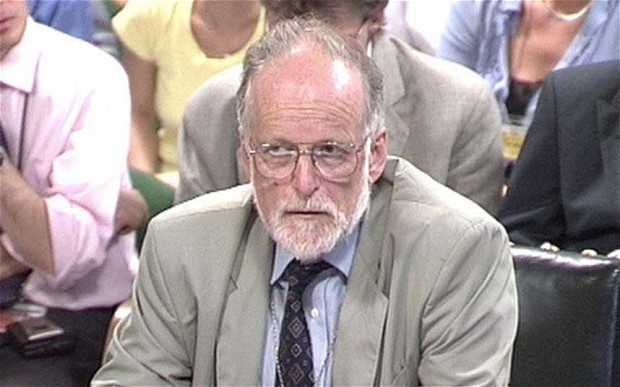
Dr. David Kelly was a world leading weapons expert who criticized the government’s claims of WMD’s that led to the Iraq war invasion. He allegedly committed suicide days after appearing before a parliamentary committee charged with investigating the scandal that ensued after his criticism.
Now a group of prominent legal and medical experts are claiming the official story of his death is “extremely unlikely”, and are calling for a new inquest after the original process was suspended by the controversial Hutton inquiry.
As reported by The Guardian:
Nine experts including Michael Powers, a QC and former coroner, and Julian Blon, a professor of intensive care medicine, said in a letter to the Times that the official cause of death – haemorrhage from the severed artery – was “extremely unlikely”.
“Insufficient blood would have been lost to threaten life,” they said. “Absent a quantitative assessment of the blood lost and of the blood remaining in the great vessels, the conclusion that death occurred as a consequence of haemorrhage is unsafe.”
This comes after Kelly’s closest female confidante recently told the Daily Mail:
He was unable to use his right hand for tasks requiring strength because of a painful injury to his right elbow.
According to American military linguist Mai Pederson, when she dined with Dr Kelly at a Washington restaurant in the spring of 2003, the hand’s grip was so weak that he struggled to get a knife through a steak he had ordered.
Kelly’s body was found in woods close to his Oxfordshire home in 2003, shortly after he denied the government’s claim that Iraq had weapons of mass destruction which could be fired within 45 minutes.
Lord Hutton concluded that “the principal cause of death was bleeding from incised wounds to his left wrist which Dr Kelly had inflicted on himself with the knife found beside his body”.
However the unpublished medical and scientific records relating to Dr Kelly’s death – including the post-mortem report and photographs of his body – have been classified for 70 years. This means we have to take the government’s word for it.
The doctors who have over-viewed the case believe the fact that his death certificate states he was ‘Found dead at Harrowdown Hill, Longworth, Oxon’ rather than confirming this was the place of death, supports suspicions that he died elsewhere and was moved to this location following death.
However Professor Guy Rutty, of Leicester University, believes this is semantics and there was lack of blood because it: “could have gone straight into the ground.”




